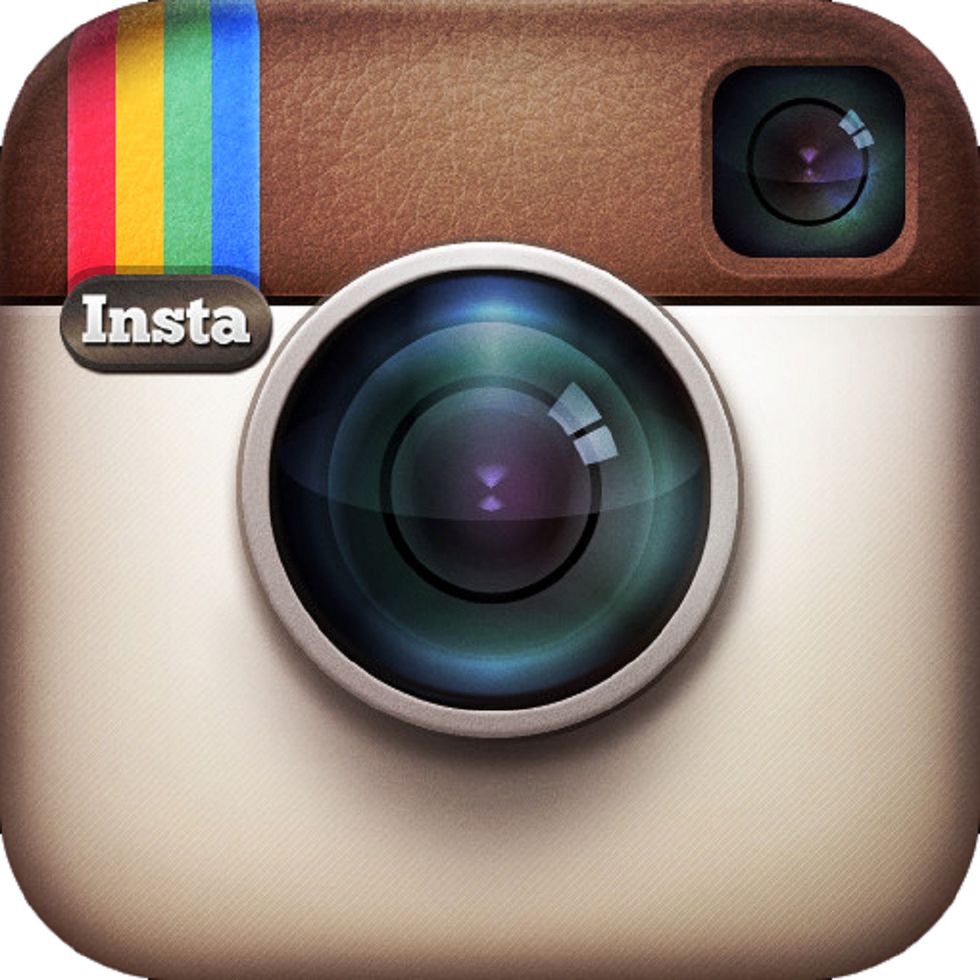There Are Two Types of Finstas, But Only One of Them is Right
Public finstas are a call for attention.
So, finstas. My generation and younger has heard of them. I'm not sure if the older generations know what I'm talking about.
Finsta: n. a fake instagram used as an outlet to talk; an online diary
However, I've seen two types of finstas. Only one is correct.
I believe the idea of having a finsta is keeping what you talk about private. You have maybe 20 followers, and you rant about life.
The other "finsta" I've seen is a public instagram that does the same thing, but EVERYONE can know your business, including future employers.
Finstas have become such a problem that I know of some sororities that have banned their members from having a finsta if their leaders can't follow it. (Sorority girls have standards on what they can and cannot post on social media.)
If you have a finsta that is public, you're doing it wrong.
I don't know where the original idea of a finsta came from. Probably from people trying to social media "stalk" private people that would be none-the-wiser who's actually behind the account. Where it slowly turned into an online diary, I have no clue.
If you have a private finsta, cool. Good for you.
If you have a public finsta with over 20 followers, your finsta isn't real. It's a call for attention. Joe Smoe doesn't really care about your breakup. Joe is just nosy.
So if you have a public finsta, do yourself a favor and only have your real friends on it.
What are real friends? The people who know you. Not the people who are just looking for reasons to get dirt on you.
Thank you for coming to my Ted Talk.
























The Fake World - My Personal Experience On Instagram
Body Dysmorphia, Followers, and Posting Photos—How can Instagram NOT affect my mental health.
The sticker on Kendall Jenner's phone says, "social media seriously harms your mental health." Despite her heavy presence online, she and many others are taking steps towards pointing out the dangers of Instagram, Facebook, Twitter, Snapchat, and other social media.
While it may seem like a source of inspiration, social media (Instagram in particular), seems to be causing people like me more negativity than anything else.
"People like me…", what does this mean? I am a 19-year-old female college student with serious body dysmorphia. By definition, body dysmorphia is "a distinct mental disorder in which a person is preoccupied with an imagined physical defect or a minor defect that others often cannot see." Those with the disorder often perceive themselves as ugly or obsess over ways to improve their physical appearance.
I grew up in the ballet world—one that emphasizes your weight and bases a large amount of success on attaining a specific body type. The ideal silhouette is long, willowy, and malnourished-looking. I have a more muscular build for a ballet dancer. Some days I see myself as a beautiful person on the inside and out, and other days I am the complete opposite.
My body dysmorphia comes and goes, but I know this: every time I open the Instagram app, I become consumed with my physical appearance and attaining the perfect body. I end up in a comparison game that I did not sign up for, obsessing over my imperfections and ultimately feeling unhappy despite all the blessings I have been given.
I initially created an Instagram to follow the trends—everyone at the time (when I was in middle school and high school in the 2010s) had an account and posted cool, artsy photos. I wanted to join in because I liked being behind the camera. Soon enough, however, Instagram started to place emphasis on being in front of the camera and now, seems to be a competition about who can look the best and show the most skin. As someone who is not always comfortable in her own skin no matter the outfit, it becomes quite the struggle to keep up with the followers, likes, comments, and appearance of being confident.
It was not until this year that I started to realize "the fake" in just about every photo on my feed. The "Instagram models," real-life models, and others post constantly because it brings fame, attention, and for some, confidence. I applaud anyone who believes Instagram is a positive in their lives, but many people that I know feel the same way I do—even without explicitly saying so. I am constantly reminding myself that people pay to have their photos edited. There are other apps like Facetune which are designed to alter the real-you into Instagram-you. I believe Instagram is wishful thinking—wishing you really look like what you post. While I take part in the comparison game, comparing every part of my body to famous models, I do not take part in the paid editing game. I do not have apps that will give me a jawline or thinner legs. I do not have an app that will change my face shape. I do not applaud myself on this, as I am more self-conscious than ever and have not posted a photo since February.
However, I am strong enough to know that the fake world on Instagram does not take into account real-life aspects like someone's charisma, personality, voice, behavior, etc. It does not guarantee you friends, likes, or happiness. It is taking a chance to put yourself out there, however you wish. It is up to you to interpret what you see and have a sense of your own self-worth.
With this being said, Instagram does come with some benefits. There are a few brave souls who are not afraid to post un-edited photos and who do bring awareness to the falseness and extreme editing. Instagram also comes with accounts not dedicated to selfies, but that serve as platforms for important causes such as human suffering, pollution of the earth, animal brutality, and the like.
Instagram is overwhelming with its positives and negatives, and it is up to me to decide what to believe and what to perceive as false. I find it helpful to take breaks from the app by logging out. Whenever I do decide to post next, I will do my best to post for ME, thinking about my own well-being and creating a positive message for all.